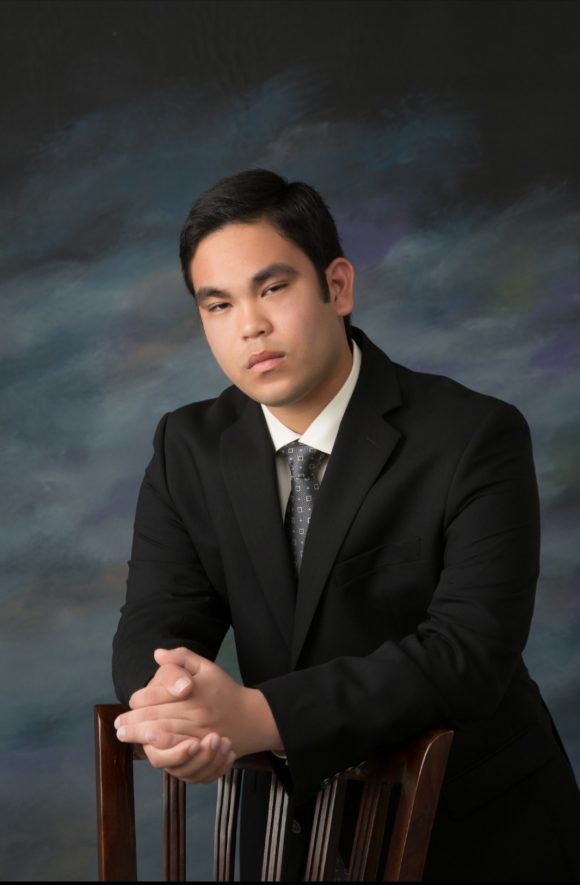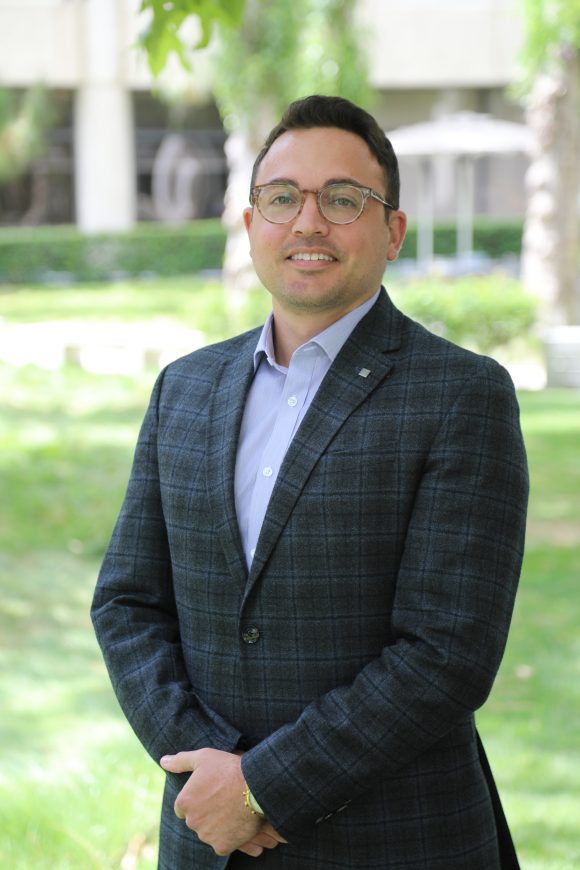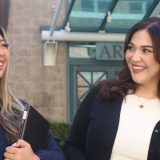
Success in a Virtual Workplace Panther community on thriving in remote work environments
April 30, 2021

Watch the Career Peer Advisor IG LIVE conversation on this topic on @chapmanucareer IGTV
When the pandemic hit almost a year ago, many of us were thrown into a state of confusion as we struggled to navigate the new situation we were in. My significant changes were transitioning to Zoom University and working from home. As a commuter student, I was already home quite often. With directions to quarantine, I was now stuck battling over strong Wi-Fi spots against my siblings to working efficiently and effectively in a room I spent most of my time in.
While listening to other people’s stories about their experiences with the pandemic and their transitions, I realized that some were thriving in working, interning, and taking online classes from home. In contrast, others struggled to reach the same level of productivity. There are many mixed feelings and a wide variety of experiences because we individually go through different situations – and each person’s experience is as valid as everyone else’s! So I decided to gather some opinions and advice on what “success” in a virtual workplace looks like and some industry trends individuals are discovering in the new normal!
Here’s what some of our alumni and industry partners have to say:
What does success in a virtual workplace look like to you?

Tara Abdi (she/her) ‘20
“Make a routine. Whether that’s going for a walk before work, watching the news, or just making coffee, it’s important to allow some time in the morning for you to reset for the day. It’s so easy to just roll out of bed and walk over to the computer, but I am never efficient or happy when I do that. Having some time in the morning to yourself is key!”

Brycen Paiz (he/him) ‘21
“To me, success in a virtual workplace looks like a cohesive collaboration between the members of a team or an organization in such a way that allows those members to communicate and work together seamlessly from remote locations with minimal misunderstandings or miscommunications.”

Meg Doyle (she/her) ’19
“Success in a virtual workspace, I think, is not overworking yourself but still accomplishing what needs to be done. My goal this year was to end the workday when I normally would in the office (around 7pm) and not go back and work more later at night. I made this rule to not become burnt out like we all did last year & I think keeping this rule makes me more productive during the actual workday, making me feel successful.”

Scott Kupchin (he/him) ’10
“Success in the virtual workplace is when we are able to maintain our interactions with each other virtually. One of the things that makes being in the office so appealing and often time efficient is the ability to “pop-in” or have an impromptu 5 minute chat to discuss a topic or solve a problem. What often happens now that we’re all working virtually, is that the same discussions are taking place via email and this can leave room for misinterpretation. It may also mean that we’re having a full day of back-and-forth emails to solve a problem that before would have taken 5 minutes. All of this is to say that we have the tools to replicate being in the office, but if we don’t use them effectively, our virtual work cannot be as efficient. We can still “pop-in” via Zoom, Teams, or other mediums, but that cultural expectation needs to be set.”
What important tips do you have for students entering the virtual workplace?

Tara Abdi (she/her) ‘20
“Set boundaries. For me, I turn off all work notifications on my phone and close my laptop right at 5pm when I’m off. Some days it’s harder to do that, but it’s important to walk away and not let work consume your life just because your office is in your room/house.”

Brycen Paiz (he/him) ‘21
“When entering a virtual workplace, I believe it is important to make a conscious effort to stay focused during long days when there are so many distractions that come with working remotely. One helpful tip to stay focused when working at home is to disable any unnecessary notifications on your computer, phone, or other devices to keep you from getting sidetracked.”

Meg Doyle (she/her) ’19
“Boundaries are very much needed. You may, like a lot of us, have the urge to do “just one more thing” at the end of the day which may lead to a million other things, keeping you way later than you need to be working. As I said, this is a quick way to experience burnout. I also highly recommend Face Timing / calling your co-workers to keep that in-office feel. I talk to my team on the phone and it almost feels like I see them daily when in reality, I haven’t seen them in over a year.”

Scott Kupchin (he/him) ’10
“Lean in to solving problems and having conversations via impromptu video calls rather than via email or messaging. Zoom fatigue is real, yes, and there are so many scheduled meetings and calls as it is. But I’ve found that the unplanned calls and collaboration actually give me energy rather than drain it, because they create a sense of partnership and allow me to solve problems much quicker, ultimately giving me time back.”
Do you think your industry will return to in-person, stay virtual, or adopt a hybrid model?

Tara Abdi (she/her) ‘20
“My industry, or at least my company, is adapting to a hybrid model. I am actually super excited about this hybrid model and think it will really alleviate the shock/anxiety from quickly going back into an office. I love the flexibility of working from home – being able to travel, have my dog sit next to me, save money on gas, wear comfortable clothes, etc. But I also do want to experience an office setting environment – be able to collaborate with my coworkers, have face-to-face interactions with clients, get ready in the morning, etc. The hybrid model will definitely be a good approach to experience both!”

Brycen Paiz (he/him) ‘21
“I believe the banking and financial services industry will end up adopting a hybrid model as much of the work done in this industry does not require an employee to work in person at an office. However, employees working in client-facing roles within the industry may find themselves needing to work in person.”
Brycen holds a B.S. in Business Administration, Finance & Japanese Cluster. He is a Wealth Management Intern at UBS.

Scott Kupchin (he/him) ’10
“It will be a hybrid model, without question. There are certainly benefits to being in the office, but from a talent attraction and retention standpoint, if you are limiting who you can hire based on where they reside, then you are inevitably missing out on an incredible amount of talent. I think this has been the biggest lesson of the past year: that the drop-off in productivity by being virtual – if there is any at all – does not outweigh the benefit of being able to hire the best of the best talent.”
What is a piece of advice you wish you knew before you started remote working?
“It’s important to break up your day so you aren’t sitting in front of a screen for 8 hours a day! Also, get blue light glasses” – Tara Abdi (she/her) ‘20
Tara holds a B.A. in Dance and in Strategic and Corporate Communication. She is a Recruiter at Insight Global.
“I wish I didn’t take the social aspect of the daily office life for granted. Definitely miss seeing my team in person. As for advice, you can slow down – not everything needs to be accomplished in record speed and to also not feel bad about taking a personal day here & there. Trust me when I say that the burn out can be real while working at home all the time” – Meg Doyle (she/her) ’19
Meg holds a B.S. in Business Administration, Marketing & Music Technology Minor. She is the Coordinator of National & Awards Publicity at Shelter Public Relations
“It’s going to be exhausting, and you still need to take a vacation. I thought going into full-time remote work would be much easier and less stressful than being in the office every day, but that has not been the case. It’s just a different kind of stress. It’s also more difficult to separate the personal and the professional and so in retrospect, I wish I would have been much better about getting away from my residence more frequently and for longer periods, because my residence is now my office, and no one wants to be “in the office” 24/7 for a full 365 days, but that’s what we’ve experienced in the past year.” – Scott Kupchin (he/him) ’10
Scott holds a B.A. Communication Studies. He is an Executive Recruiter at Farmers Insurance
There you have it! For those of you who have scored your next internship or are in the process of applying, keep in mind that workplaces shift as new curveballs get tossed our way. Remember to stay flexible, adapt, and seek insight from people in the roles, companies, and industries you are seeking to join. Check out our blog on informational interviews to learn more about how you can do just that!
